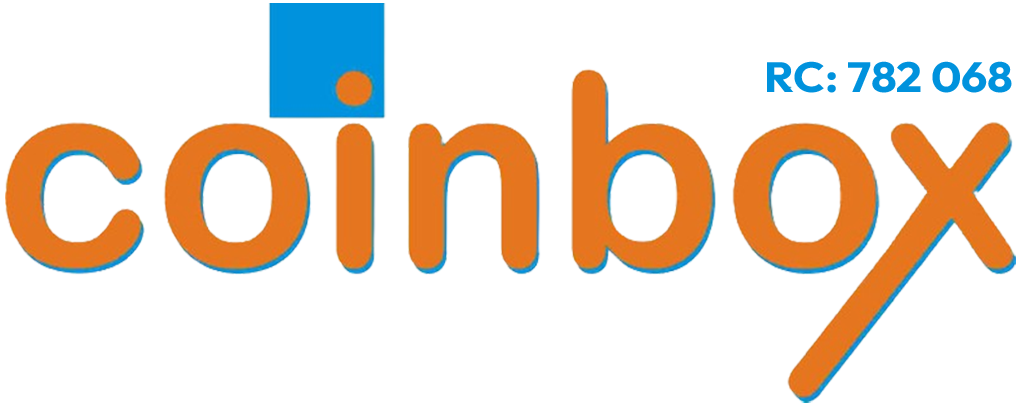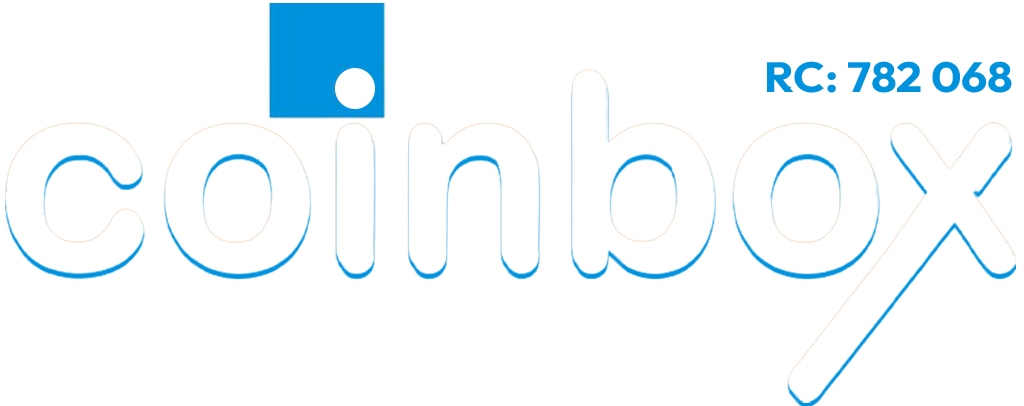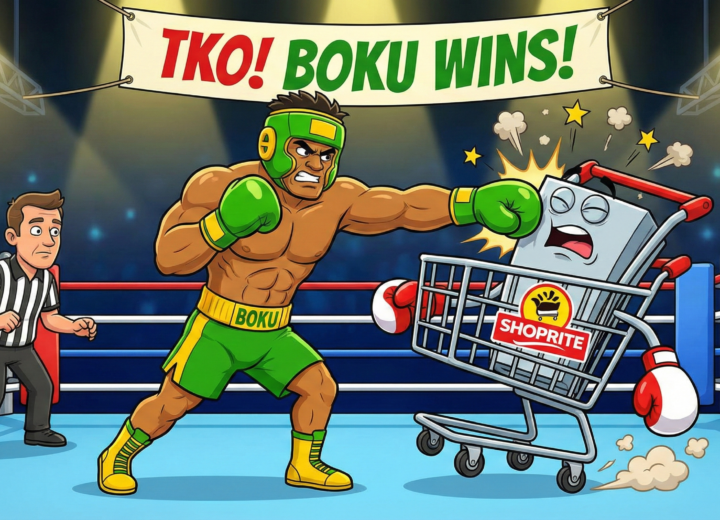🛠️ The Jobs-to-be-Done (JTBD) Framework: Understanding Customer Progress
The Jobs-to-be-Done (JTBD) framework is a powerful approach to innovation and product development that shifts the focus from the product itself or the customer’s demographics to the fundamental goal a customer is trying to achieve.
At its core, JTBD posits that customers don’t simply buy products; they “hire” them to do a specific “job” in their lives to make progress in a particular circumstance.
The Jobs to be Done (JTBD) framework is a product development and innovation approach that focuses on understanding the underlying “jobs” customers are trying to accomplish. It’s a way to identify and articulate the underlying motivations and goals that drive customer behavior.
The Jobs to be Done (JTBD) framework is a versatile tool that can be applied to various aspects of business strategy, including business model design, marketing, and overall business strategy.
JTBD as a Business Model Design Tool:
– Helps identify new business opportunities and refine existing business models.
– Enables the creation of innovative business models that address unmet customer needs.
– Facilitates the design of products and services that create value for customers and capture value for the business.
JTBD as a Marketing Strategy Tool:
– Provides a customer-centric approach to marketing, focusing on the underlying motivations and goals of customers.
– Enables the creation of effective messaging and positioning that resonates with customers.
– Helps identify and target specific customer segments with tailored marketing efforts.
JTBD as a Business Strategic Tool:
– Offers a framework for understanding customer needs and behaviors.
– Facilitates the development of strategies that address these needs and create competitive advantage.
– Enables organizations to innovate and adapt to changing market conditions.
In summary, JTBD is a multifaceted framework that can be applied to various aspects of business strategy, including business model design, marketing, and overall business strategy. Its versatility and customer-centric approach make it a valuable tool for organizations seeking to innovate and create value for customers.
What is a “Job”?
A “job” refers to a specific task or objective a customer wants to achieve. It’s not just a product or feature, but the desired outcome or progress they seek.
What is JTBD used for?
JTBD is used for:
- Product Development: Identifying new product opportunities and refining existing ones.
- Innovation: Uncovering unmet customer needs and creating innovative solutions.
iii. Marketing and Sales: Crafting effective messaging and positioning that resonates with customers.
- Customer Experience: Improving customer satisfaction and loyalty by understanding their underlying needs.
Benefits:
– Customer-centricity: JTBD helps organizations focus on what truly matters to customers.
– Innovation: Uncovers new opportunities and reduces risk in product development.
– Effective Communication: Enables messaging that resonates with customers’ underlying motivations.
By applying JTBD, organizations can create products and services that truly meet customer needs, driving growth and success.
🔑 Core Principles of JTBD
The theory is built on several key tenets that fundamentally change how a business views its market, competition, and value proposition:
- The “Hire” vs. “Buy” Mentality
People don’t want a drill; they want a hole in the wall. They don’t want a dating app; they want to find a meaningful partner (the job). The product (the drill or the app) is merely the tool they hire to accomplish that job. If a better, faster, or cheaper tool comes along, the old one gets “fired.”
- Jobs are Functional, Social, and Emotional
A job is rarely just a functional task. It involves deeper dimensions:
- Functional Job: The practical task the customer is trying to execute (e.g., transport goods from Point A to Point B).
- Emotional Job: How the customer wants to feel while doing the job or after it’s done (e.g., feel safe, feel less stressed, feel a sense of peace of mind).
- Social Job: How the customer wants to be perceived by others when the job is executed (e.g., be seen as a responsible parent, be perceived as professional).
- Jobs Are Stable, Solutions Are Fleeting
The core jobs people need done are constant over time. The need to communicate across distances has been the same for centuries, but the solutions have evolved from carrier pigeons to telegrams to phones to instant messaging apps. Focusing on the stable job provides a reliable target for long-term innovation.
- JTBD is Solution-Agnostic
The job is defined independently of any specific product or service. This frees innovators from the constraints of existing solutions and opens the door to truly disruptive ideas. For instance, the competition for the job of “making my commute productive” might include a podcast, a specialized bus service, or a sleep mask.
- Jobs are progress: Jobs are about making progress, not just completing tasks.
- Jobs are context-dependent: The same job can be done in different contexts, with varying outcomes.
📝 Applying the Framework: The Job Statement
The JTBD framework is often translated into a concise Job Story or Job Statement that captures the user’s motivation and the desired outcome within a specific context.
A common format is:
When [Situation], I want to [Motivation/Functional Job], so I can [Expected Outcome/Emotional/Social Job].
Example:
- Traditional: “We need a faster file storage system.”
- JTBD Statement: “When I’m finishing a large project from home, I want to quickly and reliably back up my entire folder to the cloud, so I can feel confident that my work is secure and move on to my personal time without worry.”
📈 Impact on Product Development and Marketing
By adopting the JTBD mindset, businesses can:
- Identify True Competition: You no longer compete only with similar products, but with anything else the customer could “hire” to do the same job.
- Prioritize Innovation: You can systematically identify underserved needs—where the job is important to the customer but current solutions are inadequate—and focus development efforts there.
- Craft Effective Marketing: Messaging moves away from feature lists and focuses directly on the customer’s struggle and the progress your product enables, speaking directly to their emotional and social jobs.
The ultimate goal of JTBD is to make innovation more predictable by anchoring all product and strategic decisions to the customer’s enduring definition of success.
Nigerian Company Examples
| Company/Product | Traditional Product Focus | Core Job-to-be-Done (Functional + Emotional/Social) |
| Paystack/Flutterwave (Payment Gateways) | Online payment processing for businesses. | Job: Help me securely receive payments from anyone, anywhere, at any time, across any channel so I can legitimize my business in the eyes of my customers and feel confident that my revenue is being captured reliably. |
| Jumia (E-commerce Platform) | Selling products online (Retail/Marketplace). | Job (Consumer): Help me reliably acquire essential and desired goods without spending hours in physical markets so I can access a better variety of products and be seen as modern and resourceful. |
| Paga/Mobile Money Agents (Agency Banking) | Cash deposit/withdrawal and bill payment services. | Job: Help me move my physical cash into the digital financial system or access my money instantly, in my local neighbourhood so I can avoid the risk and stress of long bank queues and feel financially included and secure in my daily life. |
| Bolt/Uber (Ride-Hailing in Lagos/Abuja) | Taxi service via an app. | Job: Help me get from Point A to Point B reliably, safely, and predictably in high-traffic, congested environments so I can better control my time, reduce my exposure to risk, and arrive at my destination feeling stress-free and professional. |
🌍 Global Company Examples (With Nigerian Relevance)
| Company/Product | Traditional Product Focus | Core Job-to-be-Done (Functional + Emotional/Social) |
| Netflix/Showmax (Streaming Services) | Delivering films and TV series. | Job: Help me instantly access high-quality, diverse entertainment content customized to my mood, without having to wait for a specific time or schedule so I can unwind after a long day and have something culturally relevant to discuss with my friends. |
| IKEA (Flat-Pack Furniture) | Affordable, ready-to-assemble furniture. | Job: Help me furnish my apartment quickly, affordably, and stylishly as I start my new life phase so I can create a beautiful, functional home that shows the world I have my life together (without incurring massive debt). |
| Google Search (Search Engine) | Information retrieval. | Job: Help me quickly resolve any question or challenge I encounter throughout my day so I can feel competent and empowered to make immediate decisions and keep moving forward with my task. |
| Slack/WhatsApp (Team Messaging) | Internal communication tool. | Job: Help my team stay continuously aligned and rapidly share information in a low-friction environment so we can collaborate efficiently, avoid long, formal meetings, and feel connected as a unified unit. |
🧠 The JTBD Mindset in Action
Notice how the JTBD statement shifts the focus:
- From Features to Outcomes: Paystack is not just about its API; it’s about the customer’s legitimization and reliability of income.
- From Product to Competition: Jumia’s competition isn’t just Konga; it’s the traditional market experience (a stressful, time-consuming job). Jumia is hired to avoid that stress.
- From Demographics to Circumstance: Uber/Bolt is hired not just by “busy young professionals” but by anyone “when they are stuck in traffic or need a safe ride late at night,” regardless of their title. The circumstance defines the job.
By adopting this perspective, a Nigerian fintech company, for example, would focus less on just adding another bank feature and more on solving the deep-rooted emotional job of building trust and security in a cash-dependent society.
MORE SECTOR ANALYTICS
Nigerian PropTech (Real Estate Technology)
Nigerian real estate has traditionally been challenging, characterized by fragmentation, high transaction costs, and trust issues. PropTech companies are hired to solve these deep-seated problems.
| Company/Product Focus | Traditional Product Focus | Core Job-to-be-Done (Functional + Emotional/Social) |
| Search Portals (e.g., PropertyPro, BuyLetLive) | Listing platform for properties. | Job: Help me quickly filter through thousands of property options with accurate details and verified agents so I can avoid wasting time on fake listings and feel confident that I am making a well-informed, trustworthy investment decision. |
| Fractional Ownership Platforms | Selling small units of real estate investments. | Job: Help me easily invest a small, manageable amount of money into reliable, high-value real estate so I can bypass the huge capital requirement barrier to entry and feel like a legitimate, successful property owner for wealth building. |
| Rent-Financing/Payment Platforms | Offering flexible rent payment schedules. | Job: Help me break down the huge annual rent payment into smaller, manageable monthly installments so I can stabilize my monthly budget, avoid the stress of accumulating large lump sums, and maintain my financial dignity during my housing tenure. |
⚕️ Nigerian Health-Tech
The Nigerian health sector is often plagued by access issues, long wait times, and quality control. Health-Tech solutions are hired to bridge these gaps.
| Company/Product Focus | Traditional Product Focus | Core Job-to-be-Done (Functional + Emotional/Social) |
| Telemedicine Apps (e.g., Doctoora, Tremendoc) | Virtual doctor consultations via phone/video. | Job: Help me rapidly connect with a certified, reliable doctor from the safety and convenience of my home so I can quickly get a diagnosis, save time and travel costs, and feel relieved that my health issue is being addressed immediately. |
| Pharmacy/Drug Delivery Services | Online ordering and delivery of medications. | Job: Help me reliably obtain genuine, prescription-level medication delivered to my location so I can avoid the risk of buying counterfeit drugs, skip the trip to the pharmacy, and feel secure knowing the treatment will be effective. |
| Electronic Health Records (EHR) Systems | Digital patient record management for hospitals. | Job: Help my doctor instantly access my complete, accurate medical history in a standardized format, regardless of where I am being treated so I can avoid potentially life-threatening misdiagnoses due to incomplete information and feel safe that I am receiving high-quality, continuous care. |
The JTBD perspective illuminates that these companies aren’t just selling “apps” or “services”; they are selling risk reduction, predictability, financial flexibility, and peace of mind, which are incredibly high-value jobs in the Nigerian context.
Finance sector
FinTech companies are often hired to solve the core job of providing access, predictability, and efficiency where the traditional banking system has historically been slow or inaccessible.
💰 Nigerian FinTech: Jobs-to-be-Done Analysis
- The Job of Gaining Financial Access and Trust (The Unbanked/Underbanked)
Traditional banks often involve high fees, complex bureaucracy, and physical distance. FinTech is hired to bypass these barriers.
| Product Category | Core Job-to-be-Done (JTBD Statement) |
| Mobile Banking/Neo-banks (e.g., Kuda, ALAT) | When I need to manage my money daily, I want to open a fully functional account instantly on my phone with zero monthly fees, so I can participate in the formal economy and feel in control of my finances without the stress of bank queues or hidden charges. |
| Agency Banking (e.g., Quick teller Pay point, Moniepoint Agents) | When I need to deposit or withdraw physical cash, especially in remote areas, I want to perform a secure, reliable transaction right in my neighborhood, so I can keep my cash safe from theft and feel financially included without traveling long distances to a bank branch. |
- The Job of Securing and Growing Money (Savings & Investment)
Given high inflation and economic instability, customers hire platforms to preserve the value of their money and gain returns.
| Product Category | Core Job-to-be-Done (JTBD Statement) |
| Micro-Investment/Savings Apps (e.g., Piggyvest, Cowrywise) | When I receive unexpected income or need to save for a major goal (rent, school fees), I want to easily lock away a specific amount in an instrument that beats inflation, so I can ensure my capital is protected and feel like a financially disciplined, future-proof provider. |
| Dollar/Foreign Currency Wallets (e.g., Risevest, Raenest) | When the local currency is depreciating rapidly, I want to convert my funds into a stable foreign currency asset, so I can protect my wealth from currency risk and feel secure knowing my long-term savings are preserved. |
- The Job of Facilitating International Commerce (Cross-Border Payments)
Global commerce, especially for freelancers and small businesses, is complicated by high fees and slow transfers.
| Product Category | Core Job-to-be-Done (JTBD Statement) |
| Cross-Border Payment Solutions (e.g., Paystack, Flutterwave Business) | When a global client needs to pay me or I need to pay an international vendor, I want to complete the transaction reliably and at a fair rate, so I can be seen as a professional, trustworthy global partner and ensure my business operations are never delayed by payment friction. |
🚀 Innovation Opportunities via JTBD
The JTBD framework doesn’t just explain the present; it reveals where the customer’s job is still underserved. In Nigerian FinTech, these are massive opportunities:
- Job: Simplifying SME Accounting/Taxation (The “Relief” Job):
- Underserved Need: Small business owners spend excessive time on manual records and tax compliance.
- Innovation: A FinTech solution that automatically categorizes transactions, calculates relevant taxes, and generates compliance reports directly from the business bank account. The job isn’t just “managing money”; it’s “I want to easily comply with all government requirements and accurately know my profit, so I can focus on my business and feel safe from audits.”
- Job: Building Digital Creditworthiness (The “Validation” Job):
- Underserved Need: Many credible individuals and small businesses are locked out of loans due to a lack of traditional collateral or credit history.
- Innovation: Platforms that use unconventional data (e.g., utility payments, mobile money history, inventory tracking) to create a dynamic credit score. The job is “I want my verifiable financial responsibility to be recognized, so I can access loans quickly and fairly to grow my business and be validated as a trusted borrower.”
Applying JTBD allows FinTechs to create products that solve the customer’s emotional pain (fear, stress, distrust) alongside their functional problem (sending money, getting a loan).
THE STRATEGIC IMPACT
The true value of the Jobs-to-be-Done (JTBD) framework lies in its strategic implications, especially in a dynamic, competitive, and often challenging market like Nigeria.
JTBD transforms your strategy from merely competing on features to becoming the undisputed best solution for a customer’s core struggle.
🚀 Strategic Implications of JTBD in the Nigerian Market
The JTBD framework guides companies toward two main competitive strategies: Differentiation and Disruption. Both are critical for success in Nigeria’s crowded markets.
- Competitive Differentiation: Finding Underserved Jobs
In Nigeria, simply having a product isn’t enough; the product must overcome significant contextual constraints like lack of trust, poor infrastructure, and economic volatility. JTBD helps you identify where existing solutions fail the customer.
| Strategic Action | JTBD Focus | Nigerian Example (Job-to-be-Done) |
| Targeting the Emotional Job | Focus on the social or emotional factors of the job, which competitors often ignore. | FinTech (e.g., Savings Apps): Instead of just competing on interest rates (functional), differentiate by providing extreme transparency and guaranteed security to solve the emotional job of “feeling secure about my savings against inflation and fraud.” |
| Solving the Consumption Chain | Address the steps before and after using the product (e.g., installing, maintaining, troubleshooting, paying). | Solar Power Provider: The job isn’t just “generating electricity” (functional); it’s “I want reliable power with zero personal effort or maintenance.” Differentiate with a subscription model that includes instant, free maintenance/repairs, solving the consumption job of hassle-free ownership. |
| Segmenting by Unmet Needs | Identify groups of customers who struggle with the same step in the job process. | E-commerce/Logistics: Segment customers based on how they need their delivery. One segment may prioritize speed (e.g., fresh food vendors), while another prioritizes predictability and cost (e.g., small manufacturers). Differentiate your channel and pricing for each group’s specific, unmet speed or cost need. |
- Market Disruption: Serving Non-Consumers
Disruption occurs when you create a simple, affordable solution that allows a massive group of non-consumers (people who currently don’t use any solution because the existing ones are too expensive or complex) to get the job done.
| Strategic Action | JTBD Focus | Nigerian Example (Job-to-be-Done) |
| Simplifying the Functional Job | Reduce complexity and lower the bar for entry, making the solution accessible to the mass market. | Health-Tech: The job is “accessing basic health advice quickly.” Traditional hospitals are too expensive/complex (a non-starter for many). Disruption: A low-cost, SMS-based or USSD telemedicine service that provides basic symptom checks and referrals. It’s a simple, good-enough solution that enables the unserved to start getting the job done. |
| Attacking Cost Barriers | Overcome the prohibitive cost structure of traditional solutions by finding a radically simpler business model. | PropTech/Rent: The job is “paying for a place to live.” The major constraint is the requirement for 1-2 years of rent upfront. Disruption: Rent-financing platforms that accept a lower return in exchange for massive volume, solving the financial job of “I want to pay for housing in small, monthly amounts.” |
- Organizational Alignment and Marketing
JTBD has significant internal benefits by helping your organization speak a single language focused on customer progress.
- Marketing Strategy: Messaging shifts from “We have X features” to “We help you overcome Y struggle.” This creates instant resonance.
- Example: Instead of “Our FinTech app has a 12% interest rate on savings,” the message becomes: “Our App fights inflation for you, so your children’s school fees are safe.”
- Innovation Roadmap: Instead of randomly adding features, you measure potential features against the core job. Any feature that makes the job faster, more convenient, or more predictable is prioritized. Features that only add complexity, or don’t directly impact the job’s desired outcome, are discarded.
- Competitive Analysis: Your true competition is redefined. For a logistics company, the competitor is not just another courier service; it’s the customer’s cousin going to Lagos or the local bus driver they currently “hire” for bulk deliveries. This opens up entirely new strategies.
By viewing the market through the JTBD lens, Nigerian businesses can stop battling for a small share of the existing market and start creating entirely new markets by solving the fundamental, often emotional, struggles of millions of underserved consumers.





